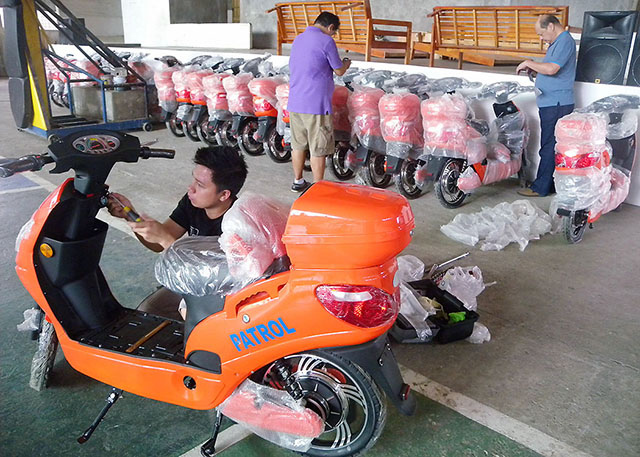Gov’t agencies, stakeholders agree on inclusion of e-motorcycles in EV tax incentives
Published March 27, 2024 7:14pm The inclusion of e-motorcycles in the tax incentives has received no objection, according to views and position papers obtained from government agencies and stakeholders in the electric vehicle industry during the review of Executive Order No. 12. The Department of Energy (DOE) said giving tax breaks to e-motorcycles is consistent […]


The inclusion of e-motorcycles in the tax incentives has received no objection, according to views and position papers obtained from government agencies and stakeholders in the electric vehicle industry during the review of Executive Order No. 12.
The Department of Energy (DOE) said giving tax breaks to e-motorcycles is consistent with the country’s objective of electrifying its transportation system to reduce carbon emissions.
“This proposed coverage expansion will send a clear price signal for consumers to switch to EVs, which are more efficient and cheaper to run per kilometer and assist in energy self-sufficiency,” DOE Utilization Management Bureau Supervising Science Research Specialist Andre Reyes said during the public hearing conducted by the Tariff Commission.
Chamber of Automotive Manufacturers of the Philippines, Inc. (CAMPI) representative Jasmin Nagera said expanding EO12 to e-motorcycles will help expand the EV pool in the country.
“We also agree with the DoE that if we are looking at the targets, we are way, way behind. So the more that we can do to maximize the potential of all these EV technologies, we really think that the government should take advantage of it,” Nagera said.
Meanwhile, in a position paper, Electric Kick Scooter (EKS) Philippines said tax incentives for two-wheeled electric vehicles (e-motorcycles) are essential to a cleaner, more sustainable transportation industry.
The Electric Vehicle Association of the Philippines (EVAP), which called for import tax concessions for electric motorcycles, calling them a “game changer”, stressed that certain electric car tax benefits should be temporary.
It also suggested creating a local EV manufacturing industry.
The Department of Trade and Industry’s Board of Investment (DTI-BOI), on the other hand, said that the body supports giving tax breaks to e-motorcycles but also wishes to address the issues surrounding them.
EO12 was enacted to complement the Electric Vehicle Industry Development Act (EVIDA) to create an industry for EVs in the country and help reduce carbon emissions, in compliance with the Philippines’ commitment to the Paris Agreement.
It modifies the tariff rates for EVs to help mainstream their use among Filipinos.
Under EO12’s current version, different types of EVs got tax breaks, while e-motorcycles are still subject to a 30% tariff rate, which drew the ire of different stakeholders, noting the ‘unfair’ treatment that these modes of transport received.—Sherylin Untalan/AOL, GMA Integrated News














